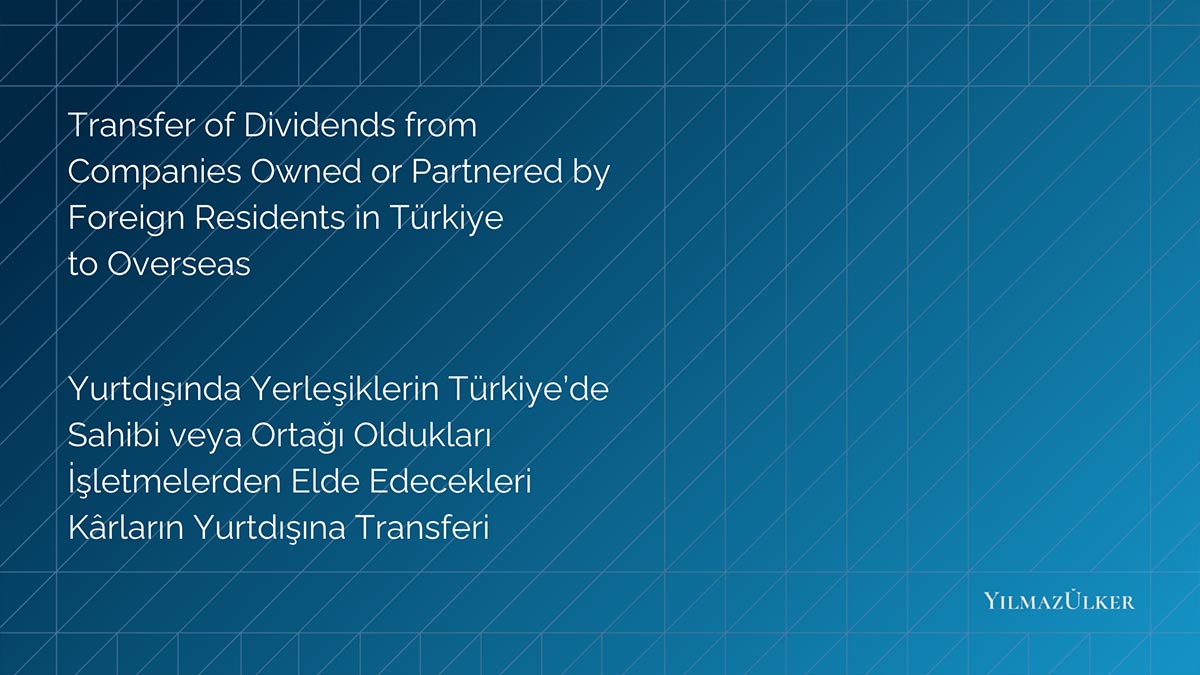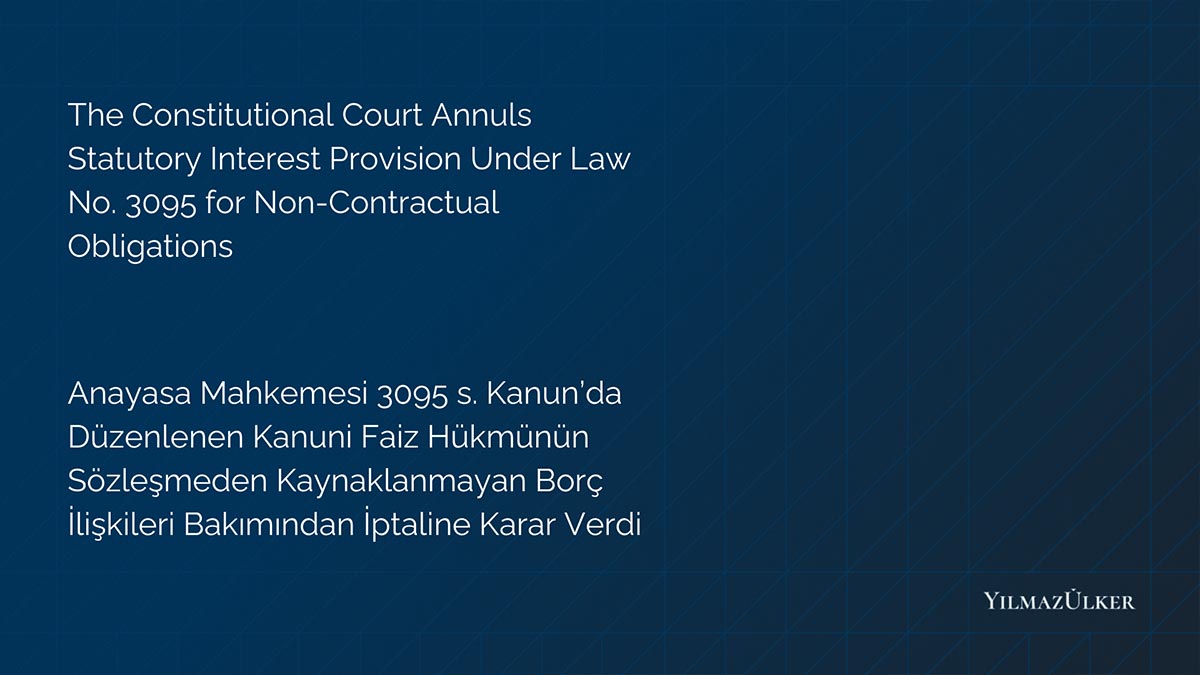Actualités & Publications

Transfer of Dividends from Companies Owned or Partnered by Foreign Residents in Türkiye to Overseas
Transfer of Dividends from Companies Owned or Partnered by Foreign Residents in Türkiye to Overseas
The concept of residency is defined both in foreign exchange and tax legislation. When adopting a comprehensive approach, conducting transactions through banks that will result in a financial outcome, taking into account both definitions can be beneficial in terms of mitigating legal and operational risks for the profit-distributing company.
Types of Income to be Obtained Domestically
Income obtained domestically is classified by the Turkish tax legislation. In this classification, the main branches of income elements are listed as commercial profits, agricultural profits, salaries, freelance earnings, real estate capital gains, securities capital gains and the remaining miscellaneous income elements are grouped under a single title called “other gains and revenues”.
In this regard, decisions regarding the distribution of dividends arising from the ownership of all or part of companies domiciled in Türkiye by individuals or legal entities considered resident abroad must be taken by the board of directors of the company.
Following this decision, banks acting as intermediaries in the process are also assigned a supervisory role regarding the transfer of the basic dividend amount for distribution to overseas within the framework of foreign exchange regulations.
The determination banks need to make when transferring dividends abroad is whether the amount to be transferred represents profits from previous years or if it is in the nature of an advance to the account of future profits. Therefore, preparing necessary documents and providing information for transfer by the company beforehand can ensure that the transaction is completed without any hitches during the verification process before bank.
Responsibility Arising from the Nature of the Transfer to be Conducted
Governments, in accordance with their tax regulations, prefer to tax income at its source. In this context, if a decision to distribute dividends is taken by a company based on the results obtained at the end of the fiscal year, tax on the distributed profit will be sought to be collected at the source.
At this stage, the swift progression of the transaction at the bank level in terms of the preparation of accounting and cash flow generated by the decision to distribute dividends by the relevant company, as well as the submission of other documents to the bank, is directly related to how well-versed the profit-distributing entity is in both foreign exchange and tax legislation.
Hence, both the profit-distributing company and the bank facilitating the transaction bear independent responsibilities for the amount of dividend to be transferred.
The above information reflects the general assessments of YılmazÜlker Attorney Partnership ("YılmazÜlker") regarding the subject matter and do not constitute legal opinion or legal consultancy services. Before taking any action based on the matters stated herein, it is recommended to seek professional legal advice by considering the specific circumstances of the case. YılmazÜlker shall not be held liable for any consequences arising from or in connection with the content of this document.






#yilmazulker #foreignexchangelaw #banking #transferofdividends #publication